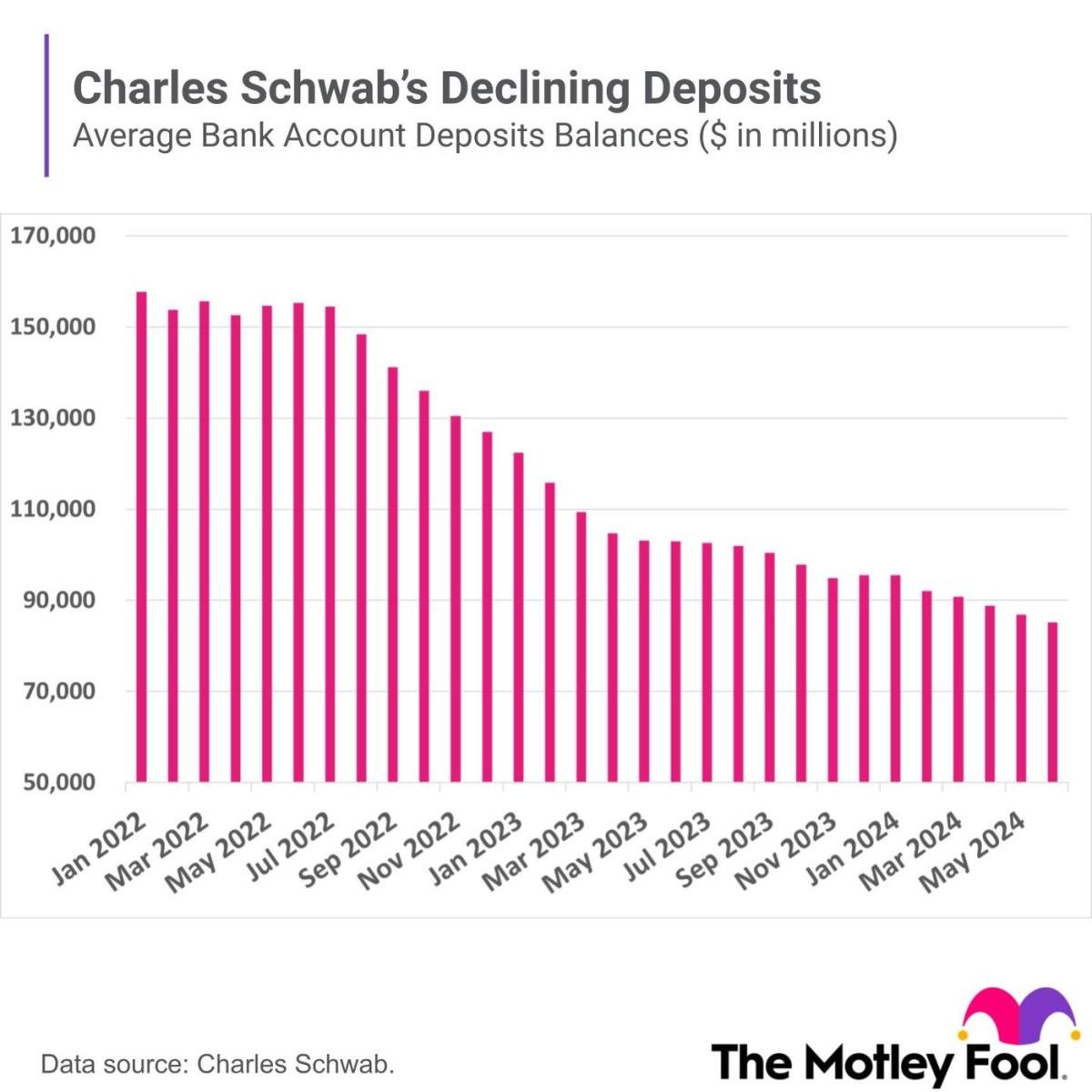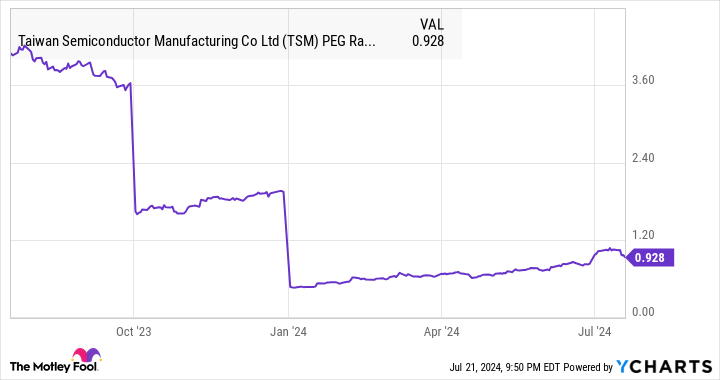Today marks a new era for the Dow Jones Industrial Average. Not only is the nearly 128-year-old index undergoing only its 52nd change with the addition of online retailer Amazon and the removal of pharmacy chain Walgreens Boots Alliance, but the Dow’s divisor (the figure that helps convert share price into Dow points) is changing due to Walmart‘s (NYSE: WMT) 3-for-1 stock split.
A “stock split” is an event which allows a publicly traded company to alter its share price and outstanding share count by the same magnitude. The important thing to note with stock splits is that they’re purely cosmetic and have no impact on a company’s market cap or operating performance.
Forward-stock splits make a company’s share price more nominally affordable for everyday investors, which can be particularly helpful for those without access to fractional-share purchases. Meanwhile, reverse-stock splits are designed to increase a company’s share price to ensure continued listing on a major stock exchange.
Walmart becomes Wall Street’s newest stock-split stock
Today, Monday, Feb. 26, Walmart enacted its 3-for-1 forward-stock split, which was first announced on January 30. Walmart CEO and president Doug McMillon noted the reasoning behind the split is to encourage employees to take part in Walmart’s Associate Stock Purchase Plan. Said McMillon:
Sam Walton believed it was important to keep our share price in a range where purchasing whole shares, rather than fractions, was accessible to all of our associates. Given our growth and our plans for the future, we felt it was a good time to split the stock and encourage our associates to participate in the years to come.
Walmart has been a prime beneficiary of an above-average inflation rate over the past two years. Walmart’s deep pockets and ability to buy products in large quantities gives it a cost and product breadth advantage that mom-and-pop shops simply can’t match. With consumers eager for a good deal, Walmart continues to draw in shoppers.
Walmart joins the select group of less than a dozen high-profile companies to have conducted a forward-stock split since the midpoint of 2021. It won’t, however, be the last widely owned or high-flying public company to declare a split. What follows are three outperformers that are likeliest to follow in Walmart’s footsteps and become the next stock-split stocks.
Meta Platforms
The first logical candidate to become Wall Street’s next stock-split stock after Walmart is none other than social media company Meta Platforms (NASDAQ: META). Meta hasn’t split its stock since going public in 2012, and its share price neared $490 less than two weeks ago.
Meta’s long-term success is a function of three factors. To start with, the company’s social media real estate is unrivaled. It’s the parent company of Facebook, the most-visited social site globally, as well as Instagram, WhatsApp, Facebook Messenger, and Threads. Collectively, Meta’s family of apps attracted just shy of 4 billion monthly active users during the December-ended quarter. Having access to this many eyeballs is an advertisers’ dream, which is why Meta often commands significant ad-pricing power.
Secondly, investors are enamored with the company’s potential beyond advertising, which includes augmented and virtual reality devices, becoming an on-ramp to the metaverse, and its various artificial intelligence (AI) applications. Even though advertising makes up nearly 98% of Meta’s total sales, the growth potential and addressable market for the metaverse and AI is mouthwatering.
The third catalyst for Meta has always been its pristine balance sheet. For example, the company closed out 2023 with $65.4 billion in cash, cash equivalents, and marketable securities, and it generated $71.1 billion in net cash from operating activities last year alone. It has the luxury to take chances on the innovation front that few other tech-driven companies can match.
Chipotle Mexican Grill
A second high-flying stock that appears primed for a stock split of its own is fast-casual restaurant chain Chipotle Mexican Grill (NYSE: CMG). Since its initial public offering in early 2006 at $22 per share, Chipotle stock has rocketed to as much a $2,725 per share, as of roughly three weeks ago. Its sky-high share price is certainly a deterrent to investors without access to fractional-share purchases.
Chipotle’s recipe for success has long revolved around the quality of its food and its innovation. The company tends to rely on locally sourced foods and vegetables, and has pledged to use only responsibly sourced meats. What Chipotle’s management team has found is that consumers are willing to pay more if they’re given healthier food choices. As a result, Chipotle hasn’t been pinched by inflationary pressures.
To add to the above, the company has kept its menu reasonably small, which has two advantages. First, a smaller menu allows its employees to efficiently prepare meals and move lines quickly. Secondly, keeping the menu compact helps new product introductions pack more punch.
But innovation is, arguably, the real secret sauce of late. in 2018, the company introduced the “Chipotlane,” which is a drive-thru lane devoted to digital-order pickup. This further sped up the ordering process and improved operating efficiency, which is a key reason Chipotle’s bottom line continues to grow by double digits each year.
Broadcom
The third highflier that looks poised to follow in Walmart’s footsteps and join an exclusive club of stock-split stocks is semiconductor company Broadcom (NASDAQ: AVGO). Prior to Avago acquiring Broadcom in 2016 and keeping the company’s name, the original Broadcom had split its stock three times. Avago, however, never conducted a stock split. A single share of Broadcom set investors back by as much as $1,295 earlier this month.
Since the start of 2023, Broadcom’s vast outperformance of the broader market has to do with its ties to the AI revolution. In April, the company introduced Jericho3-AI, which is designed to scale connectivity to as many as 32,000 graphics processing units in high-compute data centers. With businesses practically tripping over themselves to build out AI-accelerated data centers in order to take advantage of AI solutions, Broadcom’s traditionally steady growth has turned into outsized sales growth.
However, Broadcom still generates a substantial portion of its revenue from wireless chips and accessories designed for next-generation smartphones. The move to 5G has encouraged a steady replacement cycle for smartphones and other wireless devices, which has proven to be a boon to its bottom line.
The other important factor for Broadcom is that, while tech stocks are usually cyclical, it has a presumably healthy backlog. As of July 2022, Broadcom had $31 billion in backlogged orders. Despite CEO Hock Tan not providing a recent update on the company’s backlog, the flurry of order activity surrounding AI, as a whole, suggests it remains robust. A healthy backlog means dependable and predictable operating cash flow year after year.
Should you invest $1,000 in Meta Platforms right now?
Before you buy stock in Meta Platforms, consider this:
The Motley Fool Stock Advisor analyst team just identified what they believe are the 10 best stocks for investors to buy now… and Meta Platforms wasn’t one of them. The 10 stocks that made the cut could produce monster returns in the coming years.
Stock Advisor provides investors with an easy-to-follow blueprint for success, including guidance on building a portfolio, regular updates from analysts, and two new stock picks each month. The Stock Advisor service has more than tripled the return of S&P 500 since 2002*.
*Stock Advisor returns as of February 20, 2024
Randi Zuckerberg, a former director of market development and spokeswoman for Facebook and sister to Meta Platforms CEO Mark Zuckerberg, is a member of The Motley Fool’s board of directors. John Mackey, former CEO of Whole Foods Market, an Amazon subsidiary, is a member of The Motley Fool’s board of directors. Sean Williams has positions in Amazon, Meta Platforms, and Walgreens Boots Alliance. The Motley Fool has positions in and recommends Amazon, Chipotle Mexican Grill, Meta Platforms, and Walmart. The Motley Fool recommends Broadcom. The Motley Fool has a disclosure policy.
Walmart Became the Newest Stock-Split Stock Today, and These 3 High-Flying Stocks Appear Primed for Splits of Their Own was originally published by The Motley Fool

















